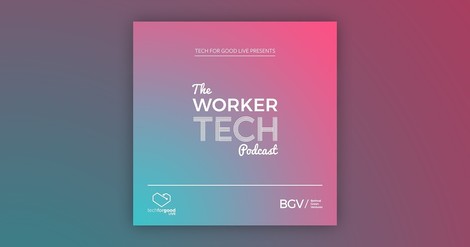Your podcast discovery platform
Curious minds select the most fascinating podcasts from around the world. Discover hand-piqd audio recommendations on your favorite topics.

piqer for: Health and Sanity Boom and bust Climate and Environment
Melissa Hutsell is an award-winning freelance journalist with a deep rooted passion for both community and international journalism. She was born and raised in Northern California, and has lived, studied, worked, and traveled in more 20 different countries. Melissa holds a Master's degree in Global Journalism from City University London, as well as degrees in Journalism and Globalization from Humboldt State University. Though she covers various topics as both a writer and editor, she specializes in business and cannabis journalism.
The Gig Economy: Endowing Or Disempowering?
This episode is part of The WorkerTech Podcast series. The series explores how technology is shaping the workforce.
The gig economy is a term that’s thrown around often. It’s usually used to describe the process in which people use online platforms to find work that’s normally packaged up into small tasks, described Fabian Wallace-Stephens, researcher with the Royal Society of Arts (RSA).
But it’s so much more than that, he explained: “It’s really much more than Uber and Deliveroo. They get the headlines, but there are more people using platforms like UpWork or People Per Hour to complete creative, professional, technology-based tasks.” He added that RSA research “showed that one in four young people (under 30) in the future would consider it.”
Right now, more than 1.1 million people are working in the gig economy in the UK. That’s a significant bunch of people, and that number is only increasing, described host Rebecca Rae-Evans.
The fact that one in four people would consider this type of employment in the future is surprising to Rae-Evans. She asked whether this type of work is inherently exploitative, or does it encourage freedom and flexibility?
On one hand, gig jobs lower the barrier to entry to the labor market, said Wallace-Stephens. It can make jobs more accessible, he explained.
But are those jobs good jobs? Do they “provide enough security and support,” Rae-Evans asks.
Rae-Evans investigates further and speaks with Uber drivers and representatives about their intent and experiences. The episode also discusses new ventures that aim to bring workable and sustainable solutions to the gig economy and create a fairer future of work.
Stay up to date – with a newsletter from your channel on Boom and bust.
